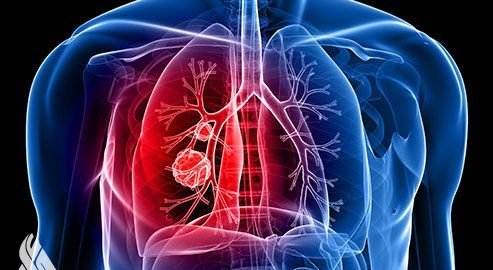
Study finds behavior matters far more to lifetime exposure to cancer-causing radiation than previously believed

- 21-10-2022, 12:37
INA-sources
A new multi-disciplinary study including researchers at the University of Calgary shows that people who act quickly to test for and mitigate radon gas in their homes are at a much lower risk of developing lung cancer long-term.
The study found swift action is key in avoiding preventable illness. In new work conducted by a collaborative team of Canadian psychologists, biologists and cancer experts, researchers found that our behavior matters far more to lifetime exposure to cancer-causing radiation than previously believed. While some of these behavioral and lifestyle factors can be easily altered, others represent major challenges.
The study, published in Scientific Reports, found that people who act quickly to learn about, test for, and reduce exposure to radioactive radon gas in their homes could reduce their lifetime risk of lung cancer by as much as 40 percent, compared to those who do not. In extreme cases, behavioral differences meant a difference of decades of exposure to radiation levels exceeding those normally only seen after a nuclear accident. Researchers found that some Canadians are absorbing more than 100 millisieverts—the unit used to measure radiation doses—of radiation to their lungs per year just from the air of their own homes.
"To put this into perspective, these are radiation doses known to have caused cancer after the Chernobyl accident. This could explain why, even though Canadian tobacco use is amongst the lowest in the world, our rates of lung cancer diagnosis and death are amongst the highest," says Dr. Aaron Goodarzi, Ph.D., lead researcher of Evict Radon, a national multi-year study of the cancer-causing gas in Canadian homes and strategies to mitigate risk.
Radioactive radon gas is the leading cause of lung cancer in non-smokers, representing between one in five to as many as one in three lung cancer cases in Canada. Smokers are in danger too, as radon exposure multiplies lung cancer risks from tobacco. Impacted individuals typically—and often unwittingly—absorb high doses of dangerous 'alpha particle' radiation in their lungs from radon gas exposure in their homes over many years prior to lung cancer diagnosis.
Source: Medical Xpress
US Central Command: We killed ISIS terrorist leader Abu Yusuf in Syria
- International
- 24/12/20
Liverpool compete with Real Madrid to sign Olympique Lyonnais star
- Security
- 24/12/19
ISC, ADX discuss Strengthening Economic Ties
- Economy
- 24/12/16
Iraq assumes presidency of Arab Investment Company’s Executive Board
- Economy
- 24/12/17












